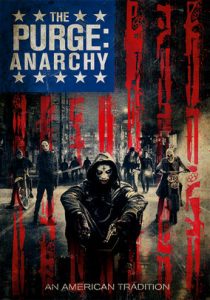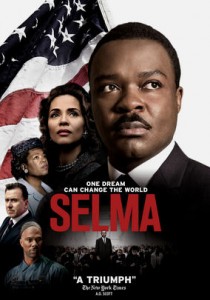The Purge: Anarchy-2014
Director James DeMonaco
Starring Frank Grillo
Scott’s Review #466
Reviewed August 16, 2016
Grade: B
As a fan of the original The Purge (2013), a creative, fresh modern horror film with a distinct message, I did not expect the sequel to match expectations nor to be as powerful as the original.
I was right on both counts.
As a stand-alone film, though, it is a decent flick, having almost nothing to do with the original, save for the same premise.
I hesitate to call The Purge: Anarchy a horror film as it contains little blood, gore, or true horror elements- it is much more of a thriller.
The premise is simple- the Government sanctioned holiday of March 21st has come around again, meaning twelve hours of sanctioned mayhem, where murder, rape, and assault are all allowed without punishment to the criminals, and no police or rescue teams are available.
The period is 2023, though I am unsure why this is relevant since nothing distinguishes the year from the current year, 2016, in the story.
Several protagonists fearfully hunker down for a night of safety in their dwellings, but circumstances force them onto the streets.
A mother and her teen daughter, a young couple, and a vigilante are the characters. The backstories of these folks are not all that important or relevant to the film. They form a group and bond with each other.
Whereas the original kept the audience in one house, The Purge: Anarchy does anything but. As the group commences, the streets of Los Angeles serve as the backdrop for the action as they endlessly traverse the dark and mainly deserted streets, hiding in garbage dumpsters, tunnels, and other sources of protection.
The vigilante, who is revealed to be an off-duty police officer, has the motivation, as his son was killed one year ago today, not as a result of the Purge, but by a drunk driver. The police officer seeks revenge via the freedom the annual Purge allows him.
The film is purely plot-driven and little character development exists, however, the group is mostly likable, especially the mother and daughter.
Interestingly, the filmmakers feature multiple races and ethnic groups, giving it a dose of diversity, which gets big kudos from me.
I could not help but draw comparisons to the popular television series The Walking Dead (2010-2022), at several points of the film, as the group, brandishing weapons, continuously encounters thugs and enemies of every kind as they wander the streets.
A creative twist to The Purge: Anarchy involves a group of Anti-Purgers, all black, who have a following of people supporting them against the government’s protocol of allowing an annual purging.
It is made clear that the main victims of the purge holiday are the poor and the sick.
Correlating with this, our group finds themselves kidnapped and taken to a lavish party where wealthy folks arrange a night of champagne and hunting as the victims are lured to their deaths as the onlookers cheer and feast in celebration.
Think of an Oscar party with gruesome results.
The Purge: Anarchy (2014) is a fun, Saturday night popcorn film worth pondering. Would society succumb to a fetish such as the annual purge if the government condoned it?
Undoubtedly the film must have been influenced by the popularity of The Hunger Games (2012-2023) in tone and theme.
It is a decent film, no more no less.

